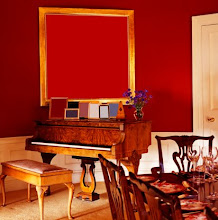Besides basic piano tuning, which should be done every 6 months to a year. Occasionally a piano needs other repairs done on it.
These types of repairs could be one of the following:
Broken keys/notes - Broken or non-functioning keys can sometimes be a simple matter of adjustment to repair or could possibly need some replacement parts installed to make them function properly... Either way, you are looking at a nominal fee to get your piano working properly.
Loose Tuning Pins - Occasionally an older piano's tuning pins become loose (these are the pins that the strings are wound around on one end of the piano). There are several ways that tuning pins can be repaired depending on the severity of the looseness. In most cases a pianos tuning pins can be tightened enough to allow for a proper tuning but in some cases the tuning pins may have to be all together replaced. If you have a piano with loose tuning pins, give us a call, we would be happy to provide a free consultation or second opinion on your pianos ability to hold a tune.
"Twangy" or "Tinny" Sounding Strings - This old "saloon" type of sound can be fixed! Most pianos can be brought back to their original and more mellow sound quality for around $200. There are two processes that need to be used most of the time; the first is to"reshape" the hammer head (the part that strikes the strings on the inside), this involves sanding down each hammer back to its original, more pointed shape. The second is to "voice" the hammer heads, this involves a tool that actually punctures the hammer head to effectively "aerate" the compacted felt making the hammer softer. The combination of a properly shaped and softened hammer makes a more mellow and soothing tone quality!
DenverPianoTuners.com and Lanier Piano Co. handle all of these repairs and more. If you have any questions or need further insight into what your piano needs in order to be brought into a better playing and sounding instrument, give us a call: 720.278.8672 or visit us on the web at www.DenverPianoTuners.com
Showing posts with label piano maintenance. Show all posts
Showing posts with label piano maintenance. Show all posts
Monday, December 15, 2008
Tuesday, September 16, 2008
Proper piano maintenance
Proper piano maintenance is a must if you want your piano to stay in great shape and be playable for years to come. Though it most likely sits in a corner of your living room and seems to be self sustaining, it is not.
Here are a few basic elements of piano care:
1. Clean it regularly to ensure that the case stays in beautiful like new condition. A light furniture polish, such as Old English, every couple of months will do wonders to keep your piano looking its best! Just be sure not to over soak it, use a damp (barley moist) cloth to dust it and then rub it down with a light coat of polish.
2. On occasion you may be inclined to vacuum/dust out the inside (especially if yours is a grand piano) . This will not only help it to look better and keep all that dust from escaping into your home but will also help to keep the strings in good shape. *Never get the strings/wires wet! This will cause severe damage if they begin to rust of corrode because of the moisture on them.
3. Have your piano tuned at the turn of the seasons. The most prevalent reason that pianos travel out of tune is a change in temperature and humidity. These two factors cause the wood and metal in the piano to contract and expand and in turn created varying amounts of tension on the strings which causes it to sound "out of tune" and may even cause a pitch change if not caught and remedied soon.
Here are a few basic elements of piano care:
1. Clean it regularly to ensure that the case stays in beautiful like new condition. A light furniture polish, such as Old English, every couple of months will do wonders to keep your piano looking its best! Just be sure not to over soak it, use a damp (barley moist) cloth to dust it and then rub it down with a light coat of polish.
2. On occasion you may be inclined to vacuum/dust out the inside (especially if yours is a grand piano) . This will not only help it to look better and keep all that dust from escaping into your home but will also help to keep the strings in good shape. *Never get the strings/wires wet! This will cause severe damage if they begin to rust of corrode because of the moisture on them.
3. Have your piano tuned at the turn of the seasons. The most prevalent reason that pianos travel out of tune is a change in temperature and humidity. These two factors cause the wood and metal in the piano to contract and expand and in turn created varying amounts of tension on the strings which causes it to sound "out of tune" and may even cause a pitch change if not caught and remedied soon.
Labels:
piano care,
piano maintenance,
piano tuning
Subscribe to:
Posts (Atom)

